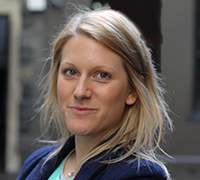Two of these will boost your brain power


Actress Natalie Portman can speak six languages, including Hebrew. Photo: AAP
Linguistics student Anthony Vaughan, 33, of Melbourne wants to learn a thousand languages or more.
He is already proficient in French, has picked up Malay, Indonesian and a little Balinese and claims a desire to master every one of Earth’s 7000 human tongues, so addicted is he to the benefits.
“In my opinion, you can’t really understand a culture unless you understand the language to a degree. There are just some things that can’t be translated and ways of communicating which lead you to understand how people think,” he said.
• Elfdalian, Sweden’s ancient elvish language, is dying
• Bill Gates wishes he learnt a second language
• Forty strange facts about the English language
“It shows you a window into another world in a way.”
To improve your life, there’s no need to learn as many as Mr Vaughan. In fact, adding just one more language to your repertoire is enough to broaden your mind.

Bilingualism can stave off Alzheimer’s disease. Photo: Shutterstock
Bilingualism has significant cognitive benefits that extend far beyond diversifying your CV, many studies have shown. Like muscles, the brain benefits from regular workouts, which the challenge of learning new words, grammar and alphabets provides.
It may even delay the onset of Alzheimer’s disease and dementia. For monolingual adults, the mean age for the first signs of dementia is about 71 years old, while adults who speak two or more languages are more likely to suffer symptoms at approximately 75 years.
Learning another language forces your brain to work harder than it otherwise would, an expert told The New Daily.
“What you have to do as a bilingual is always suppress one language in order to use the other one,” Melbourne University linguistics lecturer Dr Averil Grieve said.
“It is like going to the gym for your brain.”
Creativity and the ability to problem solve are boosted, especially in young children. Bilingual kids seem better able to focus on relevant information and ignore distractions.
“Within your first language, you learn that the rules you have learnt up to that stage are arbitrary,” Dr Grieve said.
“You realise things aren’t as fixed and grammatical correctness is not as important as we have learnt it to be.”
Other studies suggest a second language sharpens decision-making skills and leads to firmer, more confident choices.

Actress Natalie Portman can speak six languages, including Hebrew. Photo: AAP
Multi-tasking skills may also benefit from the “juggling” that using more than one language requires.
The best way to learn is immersion by mixing with native speakers, combined with theoretical book learning, Mr Vaughan said.
After learning French at school, he moved to France, which he found very useful.
“I think immersion was good, but both styles are required,” he said.
“Even while I was there I was reading grammar books and textbooks and going to grammar classes, so I think doing that, but in the context of immersion [it] really helped because you could learn something and use it straight away, and get feedback too.”
Mr Vaughan never wants to stop, but there are limits.
“The problem is I want to learn them all, but cognitively I have realised at the moment I can’t learn another,” he said.









